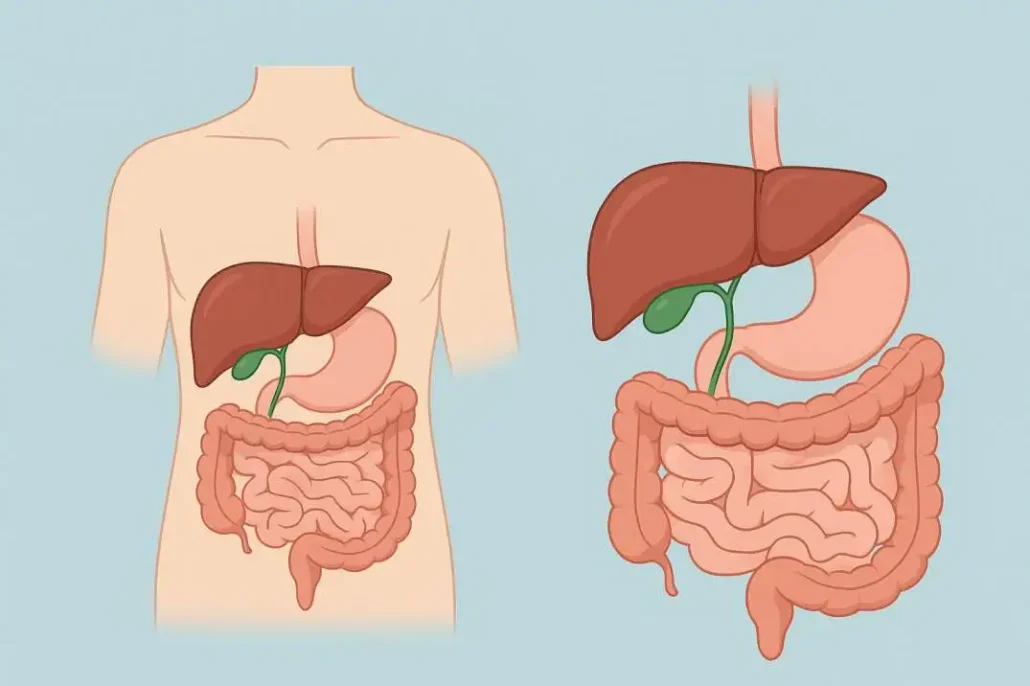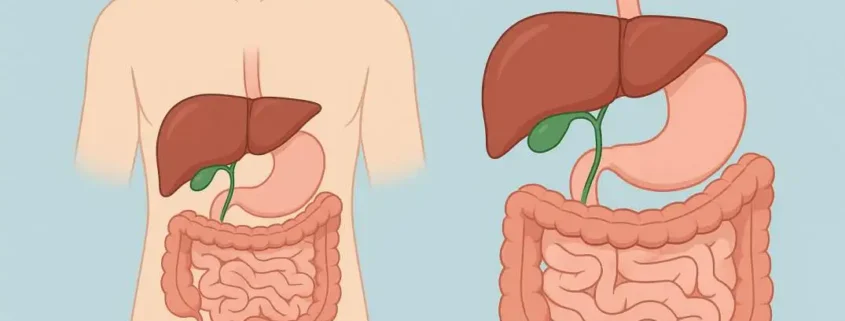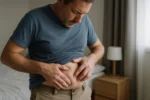What Happens to Digestion After Gallbladder Removal?
BlogLet’s Start with the Main Answer:
After gallbladder removal (cholecystectomy), your digestion does change—but your body adjusts over time. Bile, which used to be stored in your gallbladder, now flows directly from your liver to your small intestine.
This can affect how you digest fatty foods, especially in the first few weeks or months. Most people live a completely normal life after surgery—with a few mindful food choices.
Now, let’s dive deep. Whether you’re preparing for gallbladder surgery or recovering from one, this blog—powered by insights from the surgical experts at DOSS India, Pune—will answer every single question you have.
Let’s walk through the entire digestive journey, one step at a time.

What Does the Gallbladder Do in Simple Terms?
Think of the gallbladder as a small pouch that stores bile—a yellowish digestive juice made by your liver. Bile helps break down fats into smaller pieces so your body can absorb them.
- When you eat a fatty meal, your gallbladder squeezes out bile into your small intestine.
- No gallbladder? No problem. Your liver still makes bile, but now it trickles slowly and continuously into the intestine.
So, What Actually Changes After Gallbladder Removal?
Here’s what changes in your digestive system:
✅ Bile is no longer stored — it flows continuously.
✅ Fat digestion becomes slower, especially if you eat high-fat meals.
✅ You may experience temporary digestive symptoms, like:
- Diarrhea
- Bloating
- Gas
- Mild nausea
But don’t worry—these usually go away as your body adapts.
The First Few Weeks After Surgery: What to Expect
Let’s be real. The initial recovery phase might feel weird.
Dr. Neeraj Rayate and the surgical team at DOSS India, Pune often counsel patients to expect some bloating, loose stools, or mild cramps—especially after fatty or spicy meals.
Common Experiences in the First 2–6 Weeks:
- Loose stools after eating fried or creamy foods
- A feeling of fullness or bloating
- Slight nausea, especially after large meals
This is normal. It’s your body learning a new digestive rhythm.
Long-Term Digestion: Does It Go Back to Normal?
Yes! For most people, digestion goes back to normal within 2–3 months. You can eat a regular, healthy diet with only a few limitations.
According to the experts at DOSS India, Pune:
“Over 90% of our patients return to a normal eating routine within 8 to 12 weeks after gallbladder removal. The key is gradual adjustment and mindful eating.”
So yes—your body is amazing and it adapts beautifully.
The Role of Bile Without a Gallbladder
Here’s how your bile works now:
- Instead of being stored and released in bursts, bile is always dripping into your small intestine.
- This works fine for small, frequent meals.
- But if you eat a heavy, oily meal—your bile flow may not be enough to digest it properly. That’s when you may get loose stools or stomach cramps.
What Foods to Eat and Avoid After Gallbladder Surgery?
Let’s break it down in a simple chart:
Foods to Eat:
- Low-fat dairy (curd, toned milk)
- Steamed vegetables
- Fruits (bananas, apples, papaya)
- Lean proteins (chicken, fish, eggs)
- Whole grains (brown rice, oats, dalia)
Foods to Avoid (at least for 1–2 months):
- Fried foods
- Creamy or cheesy dishes
- Spicy curries
- Red meat
- Excessive sugar or desserts
Over time, you may be able to reintroduce most foods gradually.
Common Questions People Ask (And Honest Answers)
Q: Will I have lifelong digestive problems?
A: No. Most issues are temporary and manageable with diet changes.
Q: Can I ever eat oily food again?
A: Yes, in moderation, after a few months. Start with small portions.
Q: Do I need to take digestive enzymes forever?
A: Usually not. Your liver and intestines learn to compensate.
Q: Will I gain or lose weight?
A: Some lose weight due to dietary changes. Others gain if they eat unhealthy foods. Balance is key.
Q: Will I need to go to the toilet more often?
A: Maybe at first. But your bowel habits usually stabilize in a few weeks.
Expert Advice from DOSS India, Pune
The surgical team at DOSS India explains:
“We ensure every gallbladder patient understands what to expect after surgery—physically and emotionally. With guided support, most people recover smoothly and digest food normally.”
Dr. Neeraj Rayate and his team focus not only on surgery but on post-operative lifestyle coaching.
Lifestyle Tips to Improve Digestion After Gallbladder Surgery
- Eat smaller meals, more often
This helps your body handle bile better. - Chew your food well
Makes digestion easier. - Avoid very cold drinks with meals
Cold temperatures slow down digestion. - Stay hydrated
Water helps keep digestion smooth. - Add fiber slowly
Introduce fruits, veggies, and oats gradually to avoid bloating. - Keep a food diary
Track which foods suit you and which don’t.
Possible Long-Term Complications (Rare but Important)
Most people are absolutely fine. But in rare cases, you may experience:
- Chronic diarrhea (especially if you eat too much fat)
- Bile reflux (bile going back into the stomach)
- Postcholecystectomy syndrome (bloating, nausea, discomfort)
If any of these persist, consult your surgeon. At DOSS India, you’ll get a personalized diet plan and medication, if needed.
Final Thoughts: Life After Gallbladder Surgery is Normal
If you’re anxious about digestion post-surgery, take a deep breath. Your body is capable of adjusting.
With a little patience and guidance from trusted experts like those at DOSS India, Pune, you’ll be back to living fully and eating mindfully.
You’re not alone—and thousands of people thrive every year after gallbladder removal.


 +919011100010
+919011100010 


